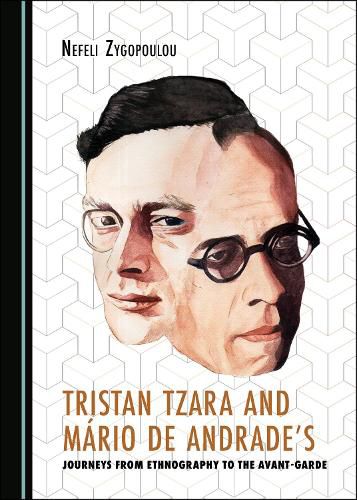Readings Newsletter
Become a Readings Member to make your shopping experience even easier.
Sign in or sign up for free!
You’re not far away from qualifying for FREE standard shipping within Australia
You’ve qualified for FREE standard shipping within Australia
The cart is loading…






This book presents a comparative study of Tristan Tzara (1896-1963) and Mario de Andrade (1893-1945), analysing their contributions to oral language traditions and to the body of criticism on modernism. This is the first work to offer an analysis of Tzara’s posthumously published prose Personnage d'insomnie, and the first in the English language that explores de Andrade’s libretto for the opera Cafe, as well as other examples of their poetry and prose. The Romanian Jewish poet and writer Tzara, later a naturalised French citizen, became a central figure in the European avant-garde from 1916 when he took part in the Dada Movement. Mario de Andrade, the Brazilian poet, writer and musicologist of mixed origins, was a contemporary of Tzara and a similarly central figure in the 1922 Sao Paulo Modern Art Week that defined Brazilian Modernism. Both emerged from very different backgrounds, but they followed a parallel creative path. This book discusses their research and adaptation of various language manifestations, ethnopoetics and folk traditions that led them to the creation of distinct and individual styles. The historical and socio-political events of the late 1930s would later prompt both authors to develop militant poetics. Through chronologically compatible case studies, the reader will discover that Tzara and de Andrade, alongside their playful language, actively criticised cultural imperialism and advocated against hate. Journeys can be physical and intellectual; they can crisscross, leave traces and overlap. This book takes the reader from two starting points, a small Romanian town in the foothills of the Carpathians, and a two-storey house in an unusually tranquil street in Sao Paulo, Brazil, to the heart of the twentieth-century avant-garde. As it shows, Tristan Tzara and Mario de Andrade traversed borders and geographical points, and their poetics meet in Mozambique, Parisian cafes and Bantu chants.
$9.00 standard shipping within Australia
FREE standard shipping within Australia for orders over $100.00
Express & International shipping calculated at checkout
This book presents a comparative study of Tristan Tzara (1896-1963) and Mario de Andrade (1893-1945), analysing their contributions to oral language traditions and to the body of criticism on modernism. This is the first work to offer an analysis of Tzara’s posthumously published prose Personnage d'insomnie, and the first in the English language that explores de Andrade’s libretto for the opera Cafe, as well as other examples of their poetry and prose. The Romanian Jewish poet and writer Tzara, later a naturalised French citizen, became a central figure in the European avant-garde from 1916 when he took part in the Dada Movement. Mario de Andrade, the Brazilian poet, writer and musicologist of mixed origins, was a contemporary of Tzara and a similarly central figure in the 1922 Sao Paulo Modern Art Week that defined Brazilian Modernism. Both emerged from very different backgrounds, but they followed a parallel creative path. This book discusses their research and adaptation of various language manifestations, ethnopoetics and folk traditions that led them to the creation of distinct and individual styles. The historical and socio-political events of the late 1930s would later prompt both authors to develop militant poetics. Through chronologically compatible case studies, the reader will discover that Tzara and de Andrade, alongside their playful language, actively criticised cultural imperialism and advocated against hate. Journeys can be physical and intellectual; they can crisscross, leave traces and overlap. This book takes the reader from two starting points, a small Romanian town in the foothills of the Carpathians, and a two-storey house in an unusually tranquil street in Sao Paulo, Brazil, to the heart of the twentieth-century avant-garde. As it shows, Tristan Tzara and Mario de Andrade traversed borders and geographical points, and their poetics meet in Mozambique, Parisian cafes and Bantu chants.